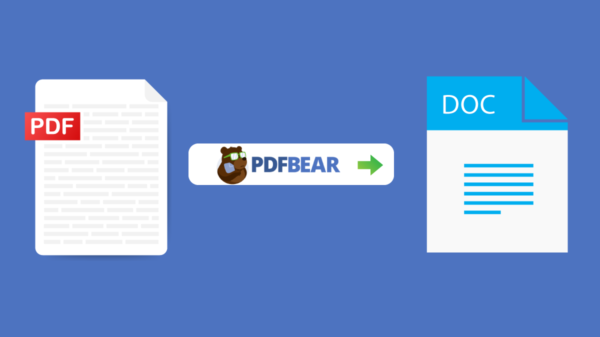Essay writing involves analysis of evidence and evaluation of ideas to develop a compelling argument. For beginners, it might be a daunting task. There are many topics one can write about in essay writing. There are also some stages one should be familiar with when preparing an essay. As a beginner, you might be wondering how to present your ideas and how people will feel about the ideas you give to them. This article will discuss some practical essay writing tips that help beginners produce a clear and well-organized essay.
10 Effective Essay Writing Tips for Beginners
1. Determine the type of essay you are writing
There are different kinds of essays you might be required to write depending on the goals you have at hand. There are narrative essays, argumentative essays, descriptive essays, and many more that fit different essay categories. Each article has its goals and expectations that you need to meet as a writer.
2. Brainstorming ideas
After identifying the type of essay you want to write, the next step is brainstorming. It would help if you did this even before penning one word. Preparation makes it easy for your ideas to flow freely. You can do your brainstorming by mapping or clustering ideas and writing ideas that come to mind. You will develop clear connections of the various topics you want to tackle in your essay. From your preparation, you can create a skeleton that outlines the main ideas of your topic. The outline will act as your guide when writing the essay.
3. Research of the topic
After choosing a topic and settling on your ideas, the next step is thorough research. You can get a lot of information from libraries and online sources. Take detailed notes as you research and note the ideas that need further exploration. It would also be good if you recorded information that you see fit to put into a citation beforehand. This will make your research easy to organize and focus upon. If you find it challenging to conduct research, you can get professional essay help from the best academic writers.
4. Develop a thesis statement and outline
Every essay has a thesis statement, and this is the main focus statement of your writing. All your arguments revolve around the thesis statement. The thesis statement summarizes your idea and answers the main questions you hope to address. As a summary of your essay, it should be about a sentence or two. After the thesis statement, you should write your essay’s outline. It serves as a blueprint for your paper. The outline helps you organize your ideas logically and follow a smooth flow. Your paragraphs should expound on the ideas in the outline and give more clarity.
5. Writing the essay
This is the most time-consuming bit of the essay. Here you have to organize your thoughts and ideas logically and craft a good introduction, body, and conclusion. Here you will add meat to the skeleton created on the outline. Do not worry about making mistakes; you can always edit after writing. The main idea here is to ensure that you communicate your thoughts to pass the intended message. You can always proofread and check grammatical mistakes later.
6. Argue both sides of an essay
When writing an essay, it is better to outline both sides of an argument. Highly qualified essay professionals focus on both the opposite sides of the debate. Having many side-by-side points makes a discussion more conclusive when developing the points for your essay. Let’s say you have an argumentative essay on whether people should drink coffee. Here you should present both the benefits and the adverse effects. You can make your conclusion from the side of the argument that emerges with more substantial points.
7. Grammar
You might have a vast vocabulary of fancy words, but if you use them out of context, you might defeat the whole purpose of writing your essay. Furthermore, you should ensure that you use all the words contextually. Check your thesaurus or dictionary to ensure that you are using words appropriately. Using synonyms instead of cliché words can also add volume to your essay. Revise grammar rules and avoid using wrong tenses, sentence structures, and vocabulary. Words are a vehicle to convey ideas, so make sure you use them wisely.
8. Read
To be a good writer, you need to read widely. Reading increases your knowledge on a subject and helps you convey ideas better. There are different kinds of essays that follow different writing styles. For you to understand them well, you need to read and sharpen your skills. Reading exposes you to various voices, genres, and forms of writing. You can be more convincing in your argument and present it better. The best essay writers, on average, read one book in a week.
9. Follow the instructions
You should always carefully read the question and answer accordingly in your essay. Do not try to make your essay longer by using a lot of filler words. Your essay description will direct you on what you ought to write to convince readers. Avoid using long words and sentences and using irrelevant information. There is a big chance of making grammatical mistakes when you use long sentences. Go for quality over quantity. Support your essay using solid evidence.
10. Proofread
As a beginner, you should always end your essay by proofreading. In proofreading, you should avoid the common mistakes people make, such as using spinners. Some students use word spinners to reduce plagiarism in their essays. This might heavily affect the readability of an article. It is an illegal practice in writing. Check whether you have followed all the instructions laid out, the sentence structure, and grammar rules in your proofreading. You can also tell someone to proofread your work. Keep in mind that you should not copy from anyone as a good writer, as this heavily reduces your credibility.
Conclusion
You now have the essential tips to help you write a fantastic essay. Essay writing does not need to be a daunting task if you follow the directions described above. The more you practice, the more you will get natural at it.
























































You must be logged in to post a comment Login